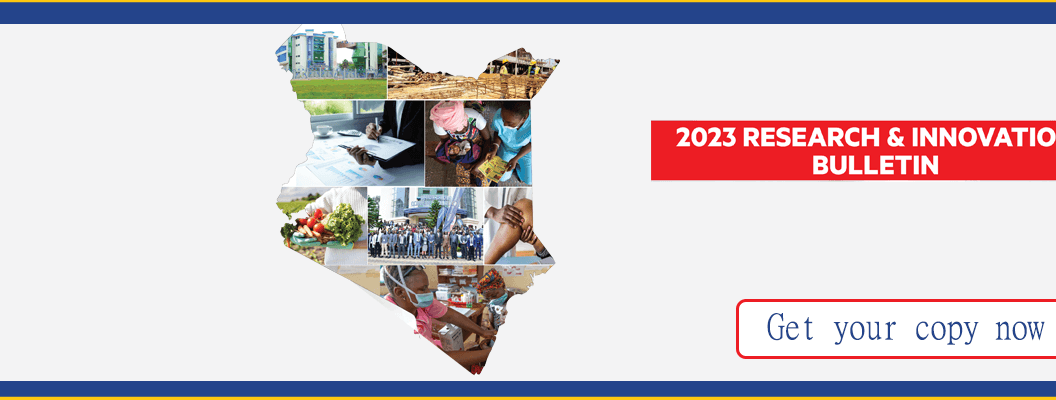Mount Kenya University recognizes the role played by research and innovation in transforming communities, national development, and sustainable use of natural resources. The university also recognizes that ground breaking research and innovation is only feasible in an ambient environment that allows free and inquisitive, and innovative curiosity. The university fully supports the attainment of the global sustainable development goals and continues to actively play its role at it contributes to this goal. In 2023, the university continued its function as a hub for research and development as it offered a platform for its faculty and collaborators to carry out groundbreaking research and innovation. The university availed research laboratories and other facilities to the members of the university fraternity, collaborators and the community for experimentation, discourse, and dissemination.
The University has established a robust postdoctoral research program that offers a platform for graduating doctoral fellows to apply their skills. This platform is meant to encourage retention of talented and well-educated young scientists interested in academia and research. The development of the program was informed by the need for an environment that allows young scientists to explore and realize their full academic potential while at the same time stemming brain drain, a challenge faced by many developing economies where opportunities are limited. The current postdoctoral fellows have won early investigator grants from various funding agencies The European and Developing Countries Clinical Trials (EDCTP), The Royal Society, National Institutes of Health among others.
The launch of the Centre for Malaria Elimination highlighted the universities commitment the attainment of SDG 3 that commits to Good Health and Wellbeing. The malaria research ventures into under-researched aspects of the disease including placental malaria, that is a major contributor of neonatal deaths, low birth weight and maternal ill health. The aim is to develop tools to aid diagnosis of placental malaria during pregnancy to prevent its deleterious effects on the health of the mother and child. The University continued to contribute significantly to the fight against antimicrobial resistance by engaging relevant stakeholders to improve antimicrobial stewardship and reduce resistance. Other faculty
members focused on studies that aimed at understanding the biology of breast tumors in Kenyan women. This group was able to demonstrate the existence of differences in genetic drivers of breast cancer between Kenyan women and their European and African American counterparts.A gene called ARID1A was identified to be highly mutated in Kenyan women but not in their American counterparts.
The University continued to attract local and international collaborations and partnerships to propel its research and innovation agenda. Some key collaborators include the National Institutes of Health (USA), National Cancer Institute (USA), University of Leipzig (Germany), University of Ibadan (Nigeria), University of Tunis (Tunisia), INES-Ruengeri (Rwanda), KNUST (Ghana), and IGRIB (Benin), The University of Ss. Cyril Methodius inTrnava (Slovakia). Cognizant of the need of a mechanism to catalyze research, innovation and dissemination of results, the university, through the Vice Chancellor’s Research and Innovation Grant (simply referred to as VC-Grant) awarded research seed grant to eighteen (18) faculty members, supported forty (40) faulty members to disseminate their study findings through publication in peer
reviewed journals, conferences, and workshops.
The VC-grant also supported hosting of the Research, Innovation and Digital Agriculture week that attracted innovators, researchers, and industry players to display their research findings. This even showcased cutting edge innovations with the winning innovation now competing on a global scale, a display of research posters and exhibitions by industrial players.

